A Guide To Preventing And Handling Pool Equipment Failures
Maintaining a pool involves more than just keeping the water clean. It includes ensuring that all equipment—pumps, filters, heaters, and cleaners—work correctly. Equipment failures can cause inconveniences, costly repairs, and dangerous situations. Regular maintenance checks and timely repairs are crucial to avoid these issues. Understanding common causes of equipment failures, such as wear and tear, improper usage, and lack of maintenance, can save pool owners time, money, and stress. For example, regularly cleaning the filter can prevent clogs, and ensuring the pump runs efficiently can reduce overheating risks. Additionally, having a professional inspect the heater annually can prevent unexpected breakdowns. By staying proactive about pool maintenance, owners can enjoy a safe, clean, and hassle-free swimming experience.
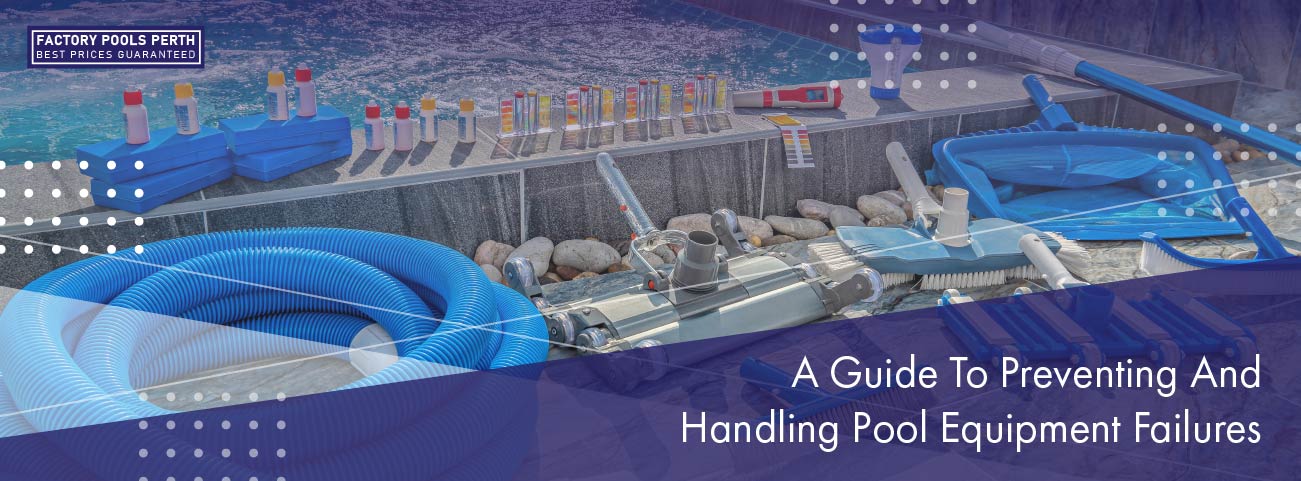
Identifying Pool Equipment Failures
Signs to Look for in Various Pool Equipment
Knowing the signs of failing pool equipment can help you address issues before they escalate.
Pumps
- Noise: Unusual sounds like grinding or screeching may indicate a failing pump motor.
- Leaks: Water around the pump housing could signify a seal failure.
- Performance: Reduced water flow or pressure can be a sign of pump impeller or motor issues.
Filters
- Clogging: A pool filter that clogs frequently may need to be replaced or cleaned thoroughly.
- Leaks: Visible water leaks around the filter tank or pressure gauge might indicate a failing O-ring or gasket.
- Pressure: High or low pressure readings often mean the filter is dirty or there’s a blockage somewhere in the system.
Heaters
- Temperature Fluctuations: Inconsistent water temperatures can signal a problem with the heater’s thermostat or sensors.
- Error Codes: Modern heaters have digital displays that show error codes when something is wrong.
- Soot or Scorch Marks: These can indicate incomplete combustion inside the heater.
Cleaners
- Poor Performance: If your pool cleaner isn’t covering the pool as it should, there could be an issue with its drive mechanism or hose.
- Stuck or Slow Movement: This could be due to debris blocking the wheels or tracks.
Importance of Regular Inspections and Early Detection
Regular inspections are vital for early detection of potential issues. By routinely checking your pool equipment, such as the pump, filter, and heater, you can identify small problems before they become major failures. This proactive approach not only extends the life of your pool equipment but also ensures a safe and pleasant swimming environment. Additionally, regular maintenance can help you avoid costly repairs and keep your pool water clean and clear. Remember, a well-maintained pool is a healthier and more enjoyable place for you and your family to swim. So, take the time to schedule those inspections and address any minor issues promptly.
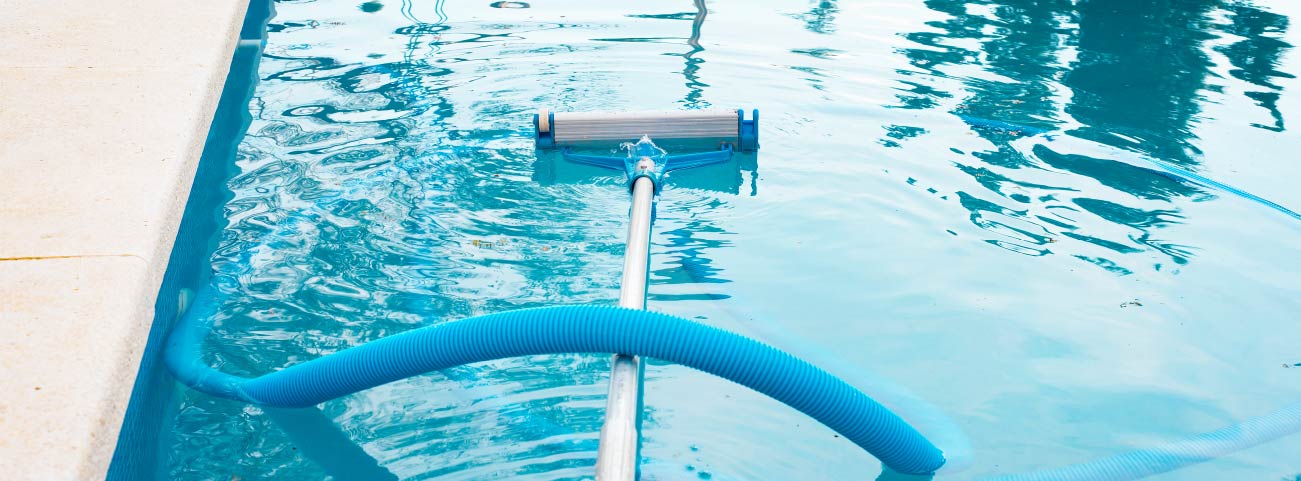
Preventing Pool Equipment Failures
Best Practices for Maintaining Pool Equipment
Proper maintenance is key to preventing equipment failures. Here are some best practices:
Cleaning
- Skimmer Baskets and Pump Strainers: Clean these weekly to ensure proper water flow and to prevent debris from clogging the system.
- Filters: Depending on the type—sand, cartridge, or DE (diatomaceous earth)—filters should be backwashed or cleaned every few weeks.
Lubrication
- O-Rings and Gaskets: Apply a silicone-based lubricant to these parts regularly to prevent drying and cracking, which can lead to leaks.
Storage
- Winterising: If you live in a region with freezing temperatures, properly winterise your pool equipment to prevent damage. This includes draining all water from pumps, filters, and heaters and storing removable parts indoors.
Tips for Scheduling Routine Maintenance and When to Call a Professional
Routine maintenance schedules can vary based on usage and environmental factors, but a good rule of thumb is:
- Weekly: Clean skimmer baskets to remove debris, check water chemistry to ensure proper pH and chlorine levels, and inspect visible equipment for any signs of wear or damage. Regularly skimming the surface can prevent larger problems down the line.
- Monthly: Thoroughly clean filters to maintain optimal water flow and filtration efficiency. Check for leaks around the pool and equipment, and lubricate O-rings to prevent wear and tear. Monthly checks can help identify issues before they become major problems.
- Annually: Have a professional inspect and service your pump, heater, and other major equipment. This includes a detailed check-up of the entire system, ensuring everything is running smoothly and efficiently. Annual maintenance can prolong the life of your pool equipment and prevent costly repairs.
Knowing when to call a professional is crucial. If you encounter persistent issues, unusual noise, or leaks that you can’t easily fix, it’s time to seek expert help. Professionals have the tools and expertise to diagnose and repair complex problems, ensuring your pool remains safe and enjoyable. Regular maintenance not only keeps your pool in top condition but also extends its lifespan, providing you with years of enjoyment.
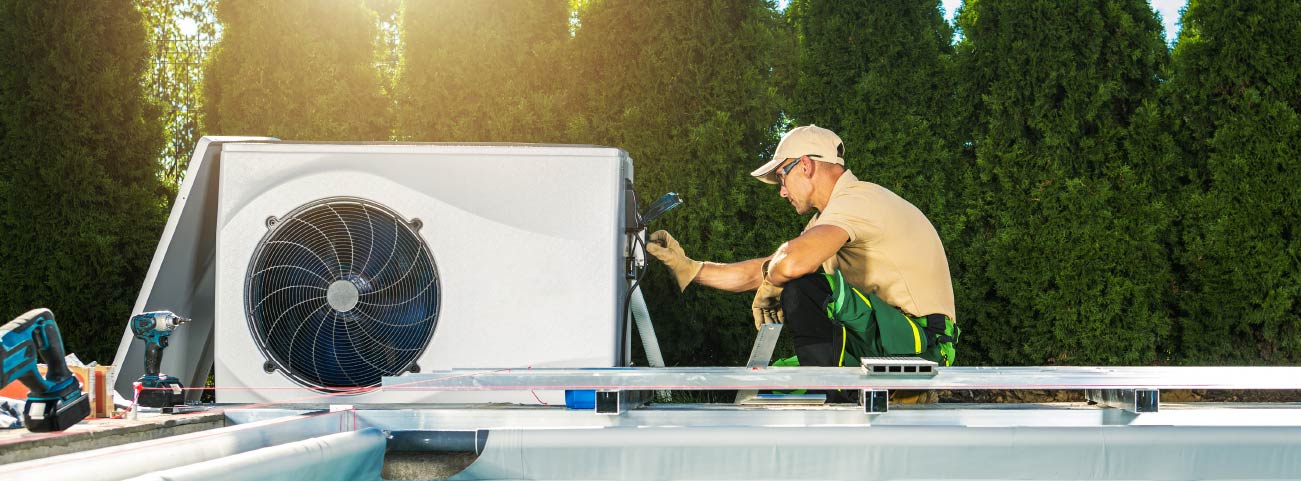
Handling Pool Equipment Failures
Step-by-Step Guide to Troubleshooting and Temporary Solutions
When pool equipment fails, quick action can prevent further damage. Here’s a step-by-step guide to handling equipment failures:
- Turn Off the Equipment: Immediately switch off the malfunctioning equipment to prevent damage.
- Inspect for Obvious Issues: Check for visible signs of damage like leaks, broken parts, or electrical issues.
- Consult the Manual: Refer to the equipment’s manual for troubleshooting tips and error codes.
- Temporary Solutions: Implement temporary fixes, such as patching a leak with waterproof tape or using a backup pump, until professional help arrives.
Advice on Attempting Repairs Yourself vs. Calling a Professional
While some minor repairs can be done by homeowners, it’s important to know your limits. Simple tasks like replacing a pump basket or cleaning a filter can be DIY projects. However, complex issues involving electrical components, gas heaters, or significant leaks should be handled by professionals to ensure safety and proper repair.
Conclusion
Regular maintenance, early detection, and knowing when to call a professional are key to preventing and handling pool equipment failures. By scheduling routine inspections, homeowners can catch potential issues before they become serious problems. Early detection of wear and tear on parts like pumps, filters, and heaters can save significant repair costs down the line. Additionally, understanding the signs that indicate when to call a professional—such as unusual noises, leaks, or decreased performance—can prevent minor issues from escalating. By following the tips outlined in this guide, pool owners can ensure their equipment remains in top condition, providing a safe and enjoyable swimming experience for family and friends. Proper care and timely interventions not only extend the lifespan of the equipment but also contribute to the overall health and safety of the swimming environment.
A Guide To Preventing And Handling Pool Equipment Failures
Maintaining a pool involves more than just keeping the water clean. It includes ensuring that all equipment—pumps, filters, heaters, and cleaners—work correctly. Equipment failures can cause inconveniences, costly repairs, and dangerous situations. Regular maintenance checks and timely repairs are crucial to avoid these issues. Understanding common causes of equipment failures, such as wear and tear, improper usage, and lack of maintenance, can save pool owners time, money, and stress. For example, regularly cleaning the filter can prevent clogs, and ensuring the pump runs efficiently can reduce overheating risks. Additionally, having a professional inspect the heater annually can prevent unexpected breakdowns. By staying proactive about pool maintenance, owners can enjoy a safe, clean, and hassle-free swimming experience.
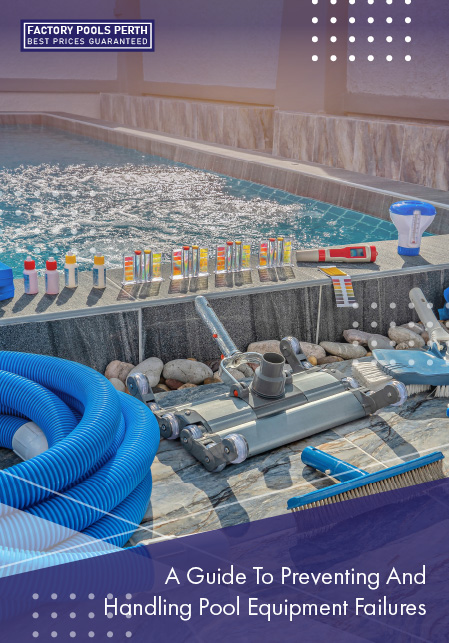
Identifying Pool Equipment Failures
Signs to Look for in Various Pool Equipment
Knowing the signs of failing pool equipment can help you address issues before they escalate.
Pumps
- Noise: Unusual sounds like grinding or screeching may indicate a failing pump motor.
- Leaks: Water around the pump housing could signify a seal failure.
- Performance: Reduced water flow or pressure can be a sign of pump impeller or motor issues.
Filters
- Clogging: A pool filter that clogs frequently may need to be replaced or cleaned thoroughly.
- Leaks: Visible water leaks around the filter tank or pressure gauge might indicate a failing O-ring or gasket.
- Pressure: High or low pressure readings often mean the filter is dirty or there’s a blockage somewhere in the system.
Heaters
- Temperature Fluctuations: Inconsistent water temperatures can signal a problem with the heater’s thermostat or sensors.
- Error Codes: Modern heaters have digital displays that show error codes when something is wrong.
- Soot or Scorch Marks: These can indicate incomplete combustion inside the heater.
Cleaners
- Poor Performance: If your pool cleaner isn’t covering the pool as it should, there could be an issue with its drive mechanism or hose.
- Stuck or Slow Movement: This could be due to debris blocking the wheels or tracks.
Importance of Regular Inspections and Early Detection
Regular inspections are vital for early detection of potential issues. By routinely checking your pool equipment, such as the pump, filter, and heater, you can identify small problems before they become major failures. This proactive approach not only extends the life of your pool equipment but also ensures a safe and pleasant swimming environment. Additionally, regular maintenance can help you avoid costly repairs and keep your pool water clean and clear. Remember, a well-maintained pool is a healthier and more enjoyable place for you and your family to swim. So, take the time to schedule those inspections and address any minor issues promptly.
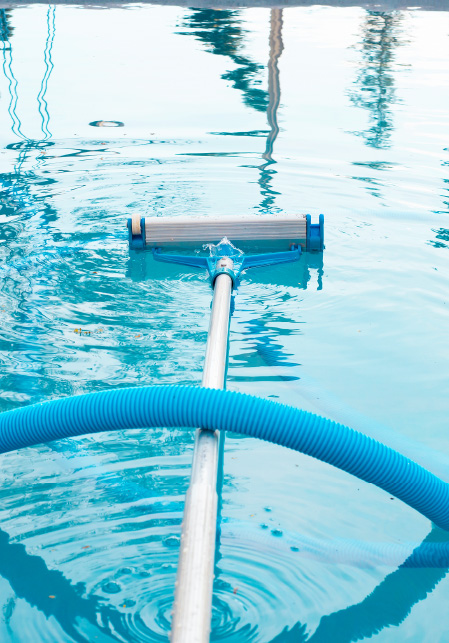
Preventing Pool Equipment Failures
Best Practices for Maintaining Pool Equipment
Proper maintenance is key to preventing equipment failures. Here are some best practices:
Cleaning
- Skimmer Baskets and Pump Strainers: Clean these weekly to ensure proper water flow and to prevent debris from clogging the system.
- Filters: Depending on the type—sand, cartridge, or DE (diatomaceous earth)—filters should be backwashed or cleaned every few weeks.
Lubrication
- O-Rings and Gaskets: Apply a silicone-based lubricant to these parts regularly to prevent drying and cracking, which can lead to leaks.
Storage
- Winterising: If you live in a region with freezing temperatures, properly winterise your pool equipment to prevent damage. This includes draining all water from pumps, filters, and heaters and storing removable parts indoors.
Tips for Scheduling Routine Maintenance and When to Call a Professional
Routine maintenance schedules can vary based on usage and environmental factors, but a good rule of thumb is:
- Weekly: Clean skimmer baskets to remove debris, check water chemistry to ensure proper pH and chlorine levels, and inspect visible equipment for any signs of wear or damage. Regularly skimming the surface can prevent larger problems down the line.
- Monthly: Thoroughly clean filters to maintain optimal water flow and filtration efficiency. Check for leaks around the pool and equipment, and lubricate O-rings to prevent wear and tear. Monthly checks can help identify issues before they become major problems.
- Annually: Have a professional inspect and service your pump, heater, and other major equipment. This includes a detailed check-up of the entire system, ensuring everything is running smoothly and efficiently. Annual maintenance can prolong the life of your pool equipment and prevent costly repairs.
Knowing when to call a professional is crucial. If you encounter persistent issues, unusual noise, or leaks that you can’t easily fix, it’s time to seek expert help. Professionals have the tools and expertise to diagnose and repair complex problems, ensuring your pool remains safe and enjoyable. Regular maintenance not only keeps your pool in top condition but also extends its lifespan, providing you with years of enjoyment.
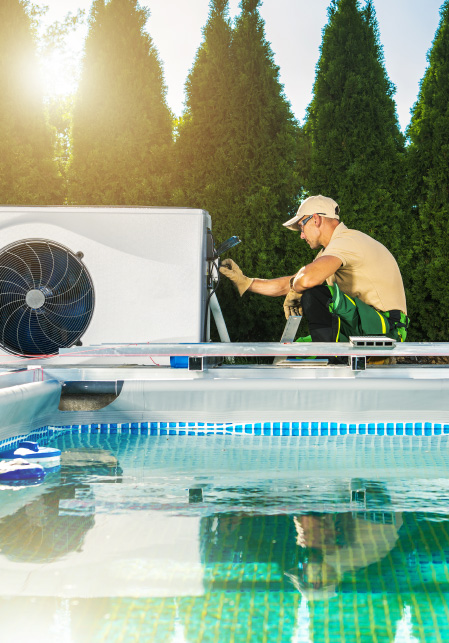
Handling Pool Equipment Failures
Step-by-Step Guide to Troubleshooting and Temporary Solutions
When pool equipment fails, quick action can prevent further damage. Here’s a step-by-step guide to handling equipment failures:
- Turn Off the Equipment: Immediately switch off the malfunctioning equipment to prevent damage.
- Inspect for Obvious Issues: Check for visible signs of damage like leaks, broken parts, or electrical issues.
- Consult the Manual: Refer to the equipment’s manual for troubleshooting tips and error codes.
- Temporary Solutions: Implement temporary fixes, such as patching a leak with waterproof tape or using a backup pump, until professional help arrives.
Advice on Attempting Repairs Yourself vs. Calling a Professional
While some minor repairs can be done by homeowners, it’s important to know your limits. Simple tasks like replacing a pump basket or cleaning a filter can be DIY projects. However, complex issues involving electrical components, gas heaters, or significant leaks should be handled by professionals to ensure safety and proper repair.
Conclusion
Regular maintenance, early detection, and knowing when to call a professional are key to preventing and handling pool equipment failures. By scheduling routine inspections, homeowners can catch potential issues before they become serious problems. Early detection of wear and tear on parts like pumps, filters, and heaters can save significant repair costs down the line. Additionally, understanding the signs that indicate when to call a professional—such as unusual noises, leaks, or decreased performance—can prevent minor issues from escalating. By following the tips outlined in this guide, pool owners can ensure their equipment remains in top condition, providing a safe and enjoyable swimming experience for family and friends. Proper care and timely interventions not only extend the lifespan of the equipment but also contribute to the overall health and safety of the swimming environment.



